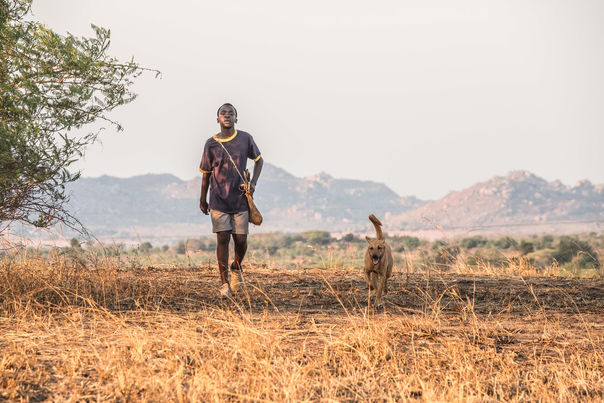Of Fathers and their Sons
By Wilfred Okiche

In THE BOY WHO HARNESSED THE WIND, the stirring directorial debut by British-Nigerian actor Chiwetel Ejiofor, an interesting moment arrives in the final quarter when the hero, William Kamkwamba (Maxwell Chimba) learns to stand up to his father, the representation of an all-present figure of authority in his life.
The farming dependent Malawian village of Wimbe in which William was born and raised is suffering through a heavy famine period occasioned by climatic change circa 2001. William believes he has the crude scientific solution to the problem. He just needs total cooperation from his father Trywell, played with a sneaking propensity to overact by Chiwetel Ejiofor, who has resisted at every turn to help the boy. It is at that moment that the dynamic in their relationship shifts and Trywell, an impoverished farmer hanging on to crude, ancient ideas, begins to see that perhaps it is time to let the old ways die.
This complex and constantly evolving relationship between fathers and sons is a strong thematic concern of THE BOY WHO HARNESSED THE WIND, the astonishing real-life story of William Kamkwamba, the teenager who through a combination of curiosity and ingenuity was able to solve an acute-on-chronic problem. Ejiofor adapts the story from Kamkwamba’s 2009 autobiography of the same title – written together with Bryan Mealer – and tells a pretty conventional, but no less rousing story that celebrates the capacity of the human spirit to triumph against the odds.
Produced by Andrea Calderwood and Gail Egan, who worked with Ejiofor on the forgettable HALF OF A YELLOW SUN, another adaptation set in Africa, THE BOY WHO HARNESSED THE WIND is a surprisingly confident debut by Ejiofor, one that places a young boy at the centre, but does not fall into the overly sentimental trap that usually lies in wait for filmmakers telling these kinds of stories. Ejiofor’s direction manages to rise above this treacly drenched safety zone, opening up to accommodate darker themes such as the Malawi government’s role in the food crisis of the early 2000s and the valid connection between desperation and crime. THE BOY WHO HARNESSED THE WIND on a deeper level considers the age long tensions of conservatism versus the modern as well as much more contemporary issues of environmental sustainability.
The cast is led by newcomer Chimba, who emerges as an engaging wide-eyed presence, able to capture both his character’s innocence and increasing awareness of his place in the world. The film was shot in the same village as the real-life events, with characters switching from English to the local Chichewa dialect. Dick Pope’s sweeping, glossy cinematography comprising wide open takes of dusty earth and clear skies adds layers of authenticity to the material. The desolation in Wimbe is conveyed clearly in crisp images of barren lands and fallen trees but not at a level that fetishizes the plight of the people. Ejiofor does not exactly flip the script in terms of how these stories are told but if THE BOY WHO HARNESSED THE WIND has anything distinct going for it, it is the layers of earnestness and poignancy that both cast and crew infuse into the story.

